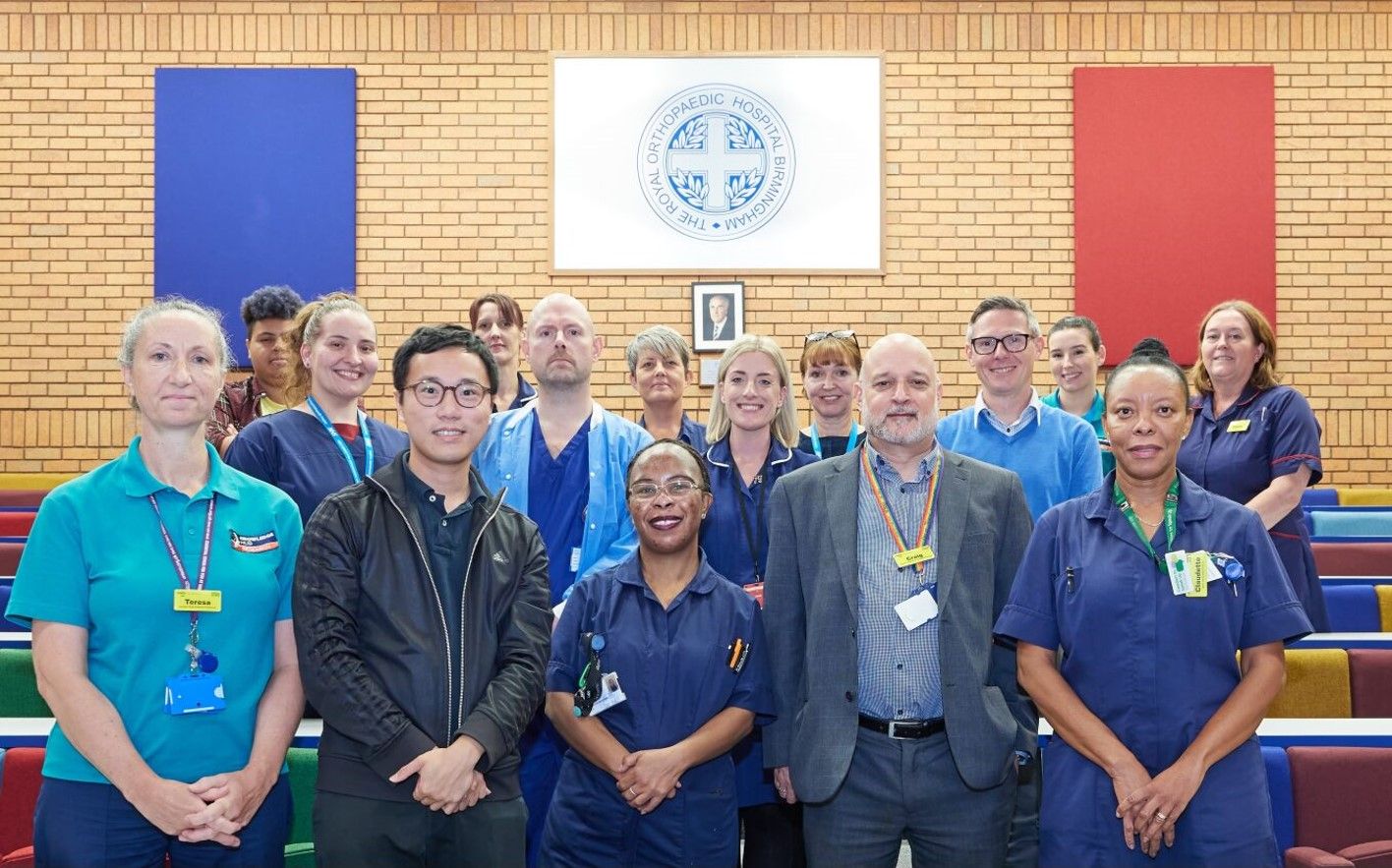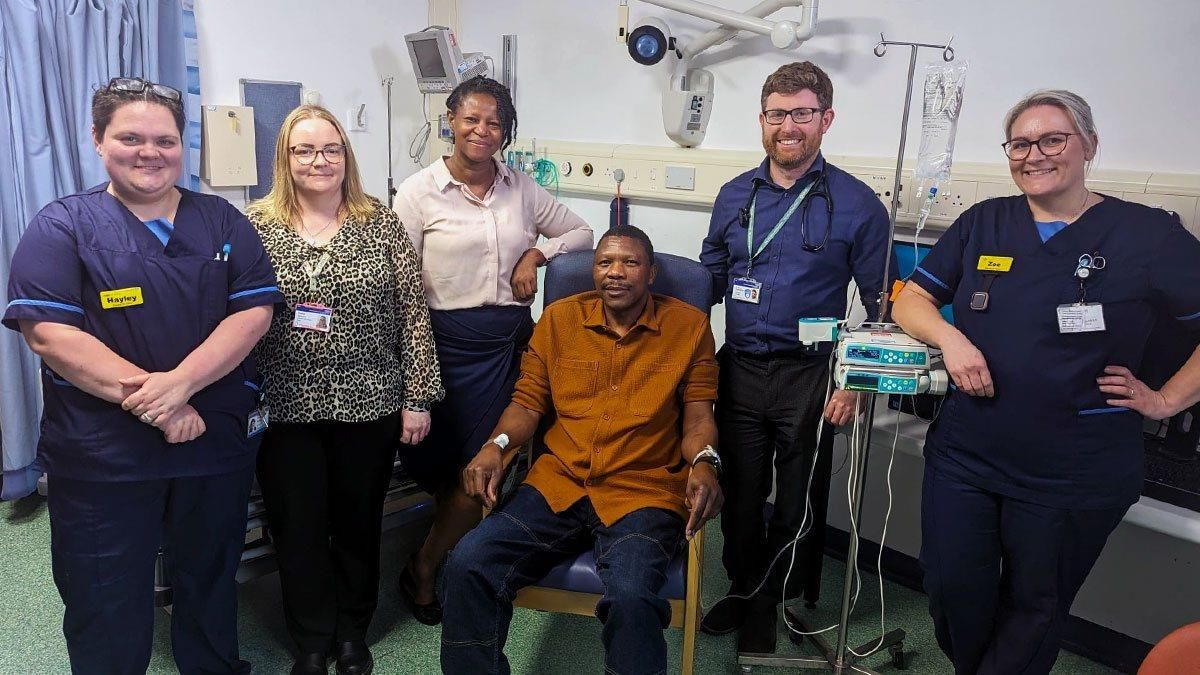Behind the scenes – meet the ROH research team
Written for BHP by Ellie Keeling, Lead Research Nurse at the Royal Orthopaedic Hospital
Birmingham is a major research hub with a thriving collaborative ecosystem convened by Birmingham Health Partners. Within this alliance, the Royal Orthopaedic Hospital (ROH) is leading the way in orthopaedic research, conducting clinical trials, observational studies, and laboratory research. Our work focuses on enhancing physiotherapy rehabilitation, developing therapies for bone tissue regeneration, and creating pharmaceutical treatments to reduce invasive surgeries and speed up recovery. ROH’s research aims to improve patient care, facilitate early diagnosis, support new drug development, and offer alternative treatments, consistently contributing new findings to the field.
The majority of this work happens behind the scenes. And the roles that make up this team are varied. They include our lab manager who oversees the management of the Dubrowsky Lab; research nurses; a research tissue bank co-ordinator; study co-ordinators; assistant clinical research practitioners; data managers; and a healthcare technician.
Research nurses play a vital role in delivering clinical research, guiding the patient as they go through the clinical research process and ultimately improving patient care and treatment pathways. It’s an incredibly diverse role, from recruiting patients for studies to collecting and tracking samples, and developing pathways to improve the delivery of trials. Because many clinical trials run over the course of several years, research nurses get to work with the same patients regularly and are able to build up a rapport with them.
Our research tissue bank co-ordinator manages our research tissue bank, which was established over thirty years ago and contains the world’s largest archive of frozen bone tumour samples – currently numbering 32,000 – including all orthopaedic malignancies as well as other benign and non-tumour tissue types. The research tissue bank is used by researchers across the globe who need access to bone and tissue samples that they can’t get elsewhere, with the samples supporting clinical projects to better understand cancers like chondrosarcomas (cancer of the cartilage cells) or develop new treatments for primary bone cancer.
The team is involved in a number of clinical trials, including the BASIS study and the RACER Hip and Knee studies. We are one of the main recruiting centres for the BASIS study, which is trying to find out which type of back brace is best for treating children and young people with scoliosis. The RACER Hip and Knee studies are exploring clinical effectiveness of robotic assisted hip and knee replacement. Pivotal to the success of these studies is patient recruitment – working closely with patients and recruiting them onto these clinical trials with empathy. Our assistant clinical research practitioners (ACRPs) are critical here, as this research couldn’t happen without the generosity of patient donations and their time. In this role, ACRPs work closely with patients to explain what research we are doing, explore how the patient could potentially participate in this research and support them through the process.
It’s essential that patient donations are viable and there are several steps required to ensure this. The role of the healthcare technician is a rare role, but a key one at ROH as it enables a clear and consistent pathway for the effective collection and packaging of patient bone and tissue samples.
Finally, our data managers keep all this work running smoothly by supporting the team with the collection and storing of patient data. This support helps our researchers identify what patient data could support new and existing clinical research as well as retrospective data-led research, all the while ensuring compliance and confidentiality.
While many research roles, especially in hospitals, are perceived as being behind the scenes, they are incredibly important bringing unique skills and knowledge and their contribution is crucial in making breakthroughs that can improve lives.
For more information on The Royal Orthopaedic Hospital’s research activities, visit Royal Orthopaedic Hospital – Research (roh.nhs.uk).





